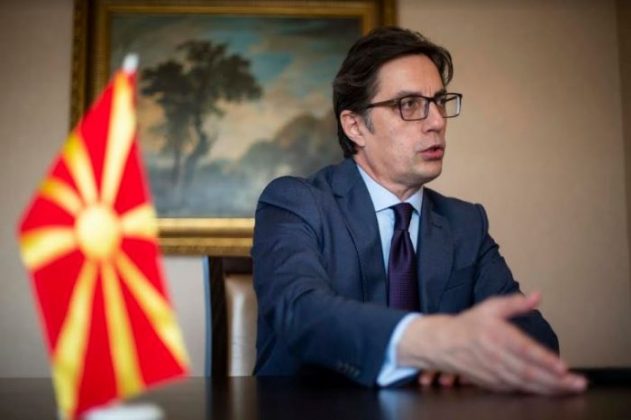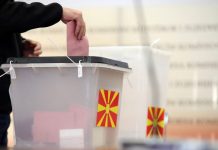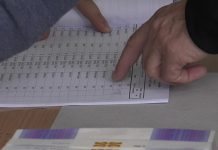The Macedonian identity and language are not and cannot be subject of any negotiations. Our identity and language are a cultural and scientific fact, a result of a long-standing historic and cultural development. In fact, the development process of our identity and language do not differ from the development of languages and cultures of neighboring nations, says President Stevo Pendarovski in an interview with Serbian daily “Politika” on Monday.
“Compared to its neighbors, North Macedonia was the last one to complete it statehood through a complex process of fight for national liberation and emancipation, and probably this factor largely impacts certain negating tendencies among a portion of the public and politicians from the neighboring countries. However, our statehood and out standardized language are a finished process and this fact should be accepted by all, as a key step in building cooperation, considering that all neighboring countries share the same strategic orientation in the European Union,” says President Pendarovski.
Regarding North Macedonia’s obstacles on its European path, Pendarovski says the country has made difficult compromises in order to join NATO and become a prospective member of the EU.
“EU membership is crucial for the general development of all countries and there is no real alternative to European integration. The region’s integration in the Union is in its strategic interest and in the context of EU’s pledge to strengthen its role as an important factor in international order. The EU gave a clear promise to countries in the region over their European perspective back at the 2003 Thessaloniki Summit and delivering on this promise is a question of the Union’s credibility. We oftentimes hear about enlargement fatigue, which is understandable from the aspect of daily politics, but on a strategic level, the European project will not be complete without the region’s integration,” notes Pendarovski.
He sees recent discussions with Bulgarian counterpart Rumen Radev in Skopje and Rome as a positive signal in bilateral relations and lowering of tensions.
“I believe it is in the interest of both countries, but also the EU, to find a way out of this situation as soon as possible, and in this context we appreciate the efforts of the Portuguese EU Presidency. We consider their proposal to be a solid foundation for further discussions. Both countries have the capacity to solve issues through dialogue, proven by the signing of the 2017 Friendship Treaty, which is a significant accord that represents the base for future relations and cooperation, as well as in bringing the two nations closer,” says Pendarovski.



